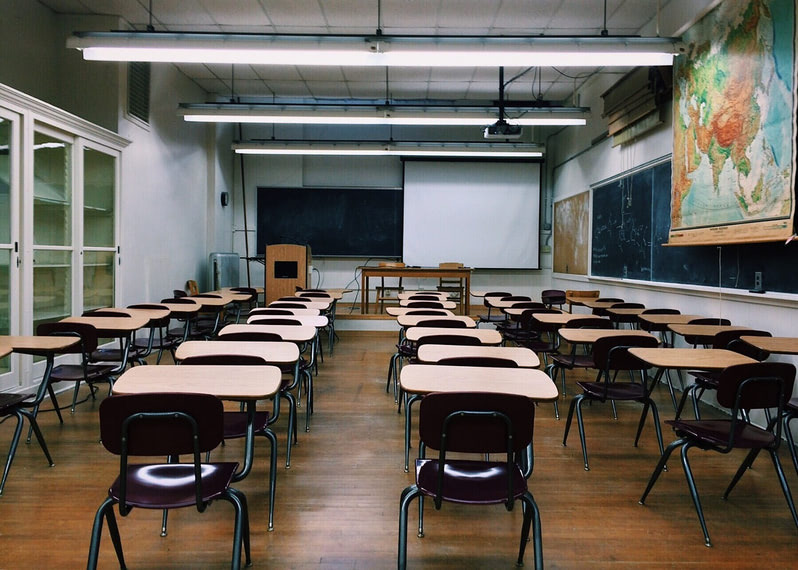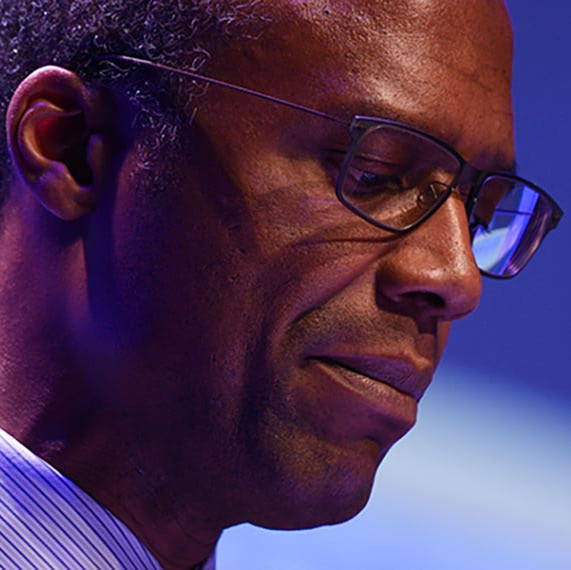National Lockdown: School and college buildings to close with most exams cancelled for 2021

@BorisJohnson yesterday evening (4 Jan) announced new national restrictions which now include the closure of school and college buildings, except to the children of key workers and vulnerable children.
The new plans from the government will see primary school, secondary school and college buildings closed for the majority of pupils until February, while also confirming that not all exams will go ahead as planned in the summer.
From today (5th January 2021) remote learning will be in place for all students, other than children of keyworkers and vulnerable students.
Prime Minister, Boris Johnson explained that it is “not possible or fair for all exams to go ahead this summer as normal”.
Boris Johnson announced that Education Secretary Gavin Williamson “work together with Ofqual to put in place alternative arrangements”.
Boris also confimed that “pupils entitled to recieve free school meals will continue to receive them while schools are closed.”
The PM suggested, that if the roll out of the Covid-19 vaccine goes to plan, there would potentially be a return or re-opening of school and college buildings after the February Half term.
In the Prime Minister’s national lockdown announcement, there was no mention made of specific plans for university students, or about any strategy in place for the January 2021 exams that were planned in the coming days, but the National Lockdown Guidance released last night by the Cabinet Office, has more detail:
Going to school, college and university
Colleges, primary (reception onwards) and secondary schools will remain open for vulnerable children and the children of critical workers. All other children will learn remotely until February half term.
In the circumstances, DfE do not think it is possible for all exams in the summer to go ahead as planned. DfE will accordingly be working with Ofqual to consult rapidly to put in place alternative arrangements that will allow students to progress fairly.
Public exams and vocational assessments scheduled to take place in January will go ahead as planned.
in relation to the January vocational and technical qualifications exams and assessments, a DfE spokesperson said:
“In light of the evolving public health measures, schools and colleges can continue with the vocational and technical exams that are due to take place in January, where they judge it right to do so.
“We understand this is a difficult time but we want to support schools and colleges whose students have worked hard to prepare for assessments and exams where necessary. This may be particularly important for VTQs which require a ‘license to practice’ which can only be fulfilled through practical assessment, such as an electrician.”
“Schools and colleges have already implemented extensive protective measures to make them as safe as possible. We will continue to work with Ofqual, awarding organisations and other stakeholders to discuss the next steps and provide more detail on the way forward, including ensuring other students have a way to progress with as little disruption as possible.”
Universities
Those students who are undertaking training and study for the following courses should return to face to face learning as planned and be tested twice, upon arrival or self-isolate for ten days:
- Medicine & dentistry
- Subjects allied to medicine/health
- Veterinary science
- Education (initial teacher training)
- Social work
- Courses which require Professional, Statutory and Regulatory Body (PSRB) assessments and or mandatory activity which is scheduled for January and which cannot be rescheduled (your university will notify you if this applies to you).
Students who do not study these courses should remain where they are wherever possible, and start their term online, as facilitated by their university until at least Mid-February. This includes students on other practical courses not on the list above.
DfE have previously published guidance to universities and students on how students can return safely to higher education in the spring term. This guidance sets out how they will support higher education providers to enable students that need to return to do so as safely as possible following the winter break.
If you live at university, you should not move back and forward between your permanent home and student home during term time.
For those students who are eligible for face to face teaching, you can meet in groups of more than your household as part of your formal education or training, where necessary. Students should expect to follow the guidance and restrictions. You should socially distance from anyone you do not live with wherever possible.
£4.6 Billion to protect jobs and support businesses during new National Lockdown
The government has today (5 Jan) announced 100% business rates relief for retail, hospitality and leisure businesses, £1.1 billion existing discretionary funding for Local Authorities, the furlough scheme now extended to April and 100% government backed loans, extended until March.
 Chancellor Rishi Sunak said:
Chancellor Rishi Sunak said:
“The new strain of the virus presents us all with a huge challenge – and whilst the vaccine is being rolled out, we have needed to tighten restrictions further.
“Throughout the pandemic we’ve taken swift action to protect lives and livelihoods and today we’re announcing a further cash injection to support businesses and jobs until the Spring.
“This will help businesses to get through the months ahead – and crucially it will help sustain jobs, so workers can be ready to return when they are able to reopen.”
Sector Response
 Dr Sam Parrett OBE, Principal and CEO of London South East Colleges, said:
Dr Sam Parrett OBE, Principal and CEO of London South East Colleges, said:
“While we await confirmation on exactly what the ‘alternative arrangements’ for exams will be this summer – it has come as a relief for many that they will not be going ahead in the usual way.
“Yet many young people are still being expected to sit vocational exams next week, which is an extremely conflicting message. Attendance at these exams is likely to be low, given that people have been told to stay at home and schools and colleges told to revert to remote learning.
“Young people have missed out on many hours of learning in the past year, despite the best efforts of teaches and senior leaders. This applies not only to those on GCSE and A Level courses, but also to those studying on technical and vocational programmes, along with apprenticeships.
“What is needed now is absolute consistency and clarity for all our learners – on all educational pathways. The sector needs assurances on funding, especially AEB, as adult participation is being affected – and providing access to re-training/upskilling opportunities has never been so important.
“Digital poverty must also be addressed further. Online learning is inaccessible to so many people due to lack of equipment and/or internet connections. No-one should be unfairly disadvantaged by these extra-ordinary times and measures need to be put in place now to mitigate the damage.”
 Simon Ashworth, Chief Policy Officer, Association of Employment and Learning Providers (AELP), said:
Simon Ashworth, Chief Policy Officer, Association of Employment and Learning Providers (AELP), said:
“It’s been a long hard few months for tens of thousands of apprentices who have been massively disadvantaged by being unable to take their functional skills tests for maths and English due to covid restrictions.
“Having now taken a decision on GCSEs and A levels, let’s hope that finally the government and Ofqual will green light a return to centre assessed grades for functional skills instead of holding up apprentices’ progress for even longer.“
 David Hughes, Chief Executive of the Association of Colleges (AoC) comments:
David Hughes, Chief Executive of the Association of Colleges (AoC) comments:
“It seems that the Government wants the January VTQ exam series to go ahead over the next 3 weeks. That involves over 135,000 students in colleges.
“I think they should be cancelled – it is not safe for them to go ahead and it is not fair for students nor for staff. The Prime Minister has said that everyone should stay at home as much as possible, so how can he expect college staff to go in to invigilate, or students to feel safe enough to sit exams? I cannot see any reason strong enough for them to go ahead, and to cancel the summer exams and not the January series is inexplicable. Attendance anyway would be low, and travel for students and staff will be difficult, so I hope that the DfE recognises the impossibility of the situation and announces a cancellation as soon as possible.”
 Tom Bewick, Chief Executive of the Federation of Awarding Bodies (FAB) said:
Tom Bewick, Chief Executive of the Federation of Awarding Bodies (FAB) said:
“The Government is sending mixed messages. The Covid national alert is at Level 5. The Prime Minister says we must ‘stay at home’. The summer exams have been cancelled.
“We welcome such clarity. Yet Gavin Williamson has ordered the January exams to go ahead.
“As other sector leaders have said, this really does not add up and we would therefore call on Ofqual and DfE to urgently review the decision to press ahead with vocational exams this month.”
 Kirstie Donnelly, CEO of City & Guilds comments:
Kirstie Donnelly, CEO of City & Guilds comments:
“What’s important now more than ever, whilst we have to accept the realities of where we are today given the latest announcement on the pandemic impact, is that we all work together to create an optimistic and hopeful future for our students, learners and apprentices and their hopes and dreams. We must not accept the culture of fear that seems to be so prevalent in the current handling of the pandemic.
“We are going into this lockdown in a stronger position than we were last time, we have a vaccine and we’ve all learnt lessons about what needs to happen to ensure the futures of hundreds of thousands of students are not thwarted by our decisions.
“This means the Secretary of State accepting that putting a stop to the CAG (centre assessed grades) process which proved a successful exam mechanism over the summer was the wrong decision to make. We must see a reversal back to CAGs before it’s far too late and we’d like to see the Government listening much more to the experts working in the sector. Had our warnings over the need to prepare for a year of exam disruption been listened to last year we would be finding ourselves in a much stronger position going into this next lockdown. And we could also have reduced the growing gap in the thousands of apprentices needing to complete their functional skills exams to qualify for their apprenticeships.
“More than ever this is not the time to dig our heads in the sand or to worry about “pride before a fall”. Please Secretary of State we urge you for the sake of the sector and all the beneficiaries in it, not to mention the longer term economic and societal impact, to do the right thing this time – listen to your colleagues in the sector and then act now. “
 In a joint statement from the Collab Group, CEO Ian Pretty and Chair John Thornhill said:
In a joint statement from the Collab Group, CEO Ian Pretty and Chair John Thornhill said:
“The imposition of another national lockdown represents a considerable challenge for colleges across the country. We are confident in the ability of colleges to move to remote learning and support the student community throughout this difficult time. Digital poverty will remain a live issue, and while the Government has committed to increasing access to electronic devices, gaps in access are likely to persist. We welcome the clarity that provided by the Prime Minister on the cancellation of summer exams and will await details of the alternative arrangements.
“We do, however, join with many others who have raised concerns about the viability of learners sitting vocational exams this month. The clear direction of the Prime Minister to close education institutions is at odds with the continuation of VTQ exams. Given the rapid spread of the virus across the UK, ensuring the safety of both learners and staff must be at the centre of decision making. On this basis, these exams should be postponed.”
 Rae Tooth is CEO of Villiers Park Educational Trust, said:
Rae Tooth is CEO of Villiers Park Educational Trust, said:
“Disadvantaged students have the most to lose from school and college closures. During the first lockdown, the attainment gap between young people from less advantaged backgrounds and their peers widened; preventing this from happening further during the current lockdown by ensuring that high-quality online learning is available to all must be a national priority.
“Digital poverty is a big issue for many families. Over 700,000 children do not have access to a laptop or tablet which would allow them to learn at home. In many other, homes a single device is being shared between working, low-paid parents as well as between siblings. Teachers found that, during the first national lockdown, a lower proportion of disadvantaged students engaged with their learning compared to their peers. We must remove these obstacles to learning and school engagement.
“When it comes to working with students from less advantaged backgrounds, Villiers Park has a strong track record of supporting young people and encouraging them to achieve their potential. We work with hundreds of students from across England each year. In the first lockdown last March, one in five of our students did not have any internet access or lived in a household with only one mobile phone. For many of them, the same is true today, making the next few weeks a greater challenge than it should be. Working alongside our partner schools and colleges, we are providing devices to students who would otherwise not have access to online learning, but our funds are limited. The government has a duty to prevent digital poverty leaving young people cut off from education.
“Remote education is also hampered by a lack of effective digital pedagogy. Schools are working wonders to rapidly draw up plans to support their students in the weeks ahead. But there is more to learning online than providing links for video lessons, and contingency plans drawn up in haste do not address the underlying barriers to learning faced by the most marginalised young people. Villiers Park’s Future Leaders programme is designed to support them in developing self-efficacy and agency in their own futures and equip them with the skills, experiences and motivation they need to become active learners, and ultimately leaders in their chosen field.
“The coaching model we use draws on the latest evidence-informed approaches, helping Future Leaders to explore their values and purpose to understand what is most important to them and what they want to achieve. It will help them assume responsibility for their own outcomes and develop their own solutions to the challenges they face.
“Given the challenges posed by the pandemic, schools, colleges and families are doing a remarkable job of delivering education in trying circumstances. But the young people already at risk of being left behind are even more vulnerable now. Villiers Park can help them to work towards a more positive future – but we can’t do it alone. If the government is genuine in its commitment to ‘levelling up’, now is the time to prove it.”
Prioritising education means prioritising safety in schools and vaccinations for staff
 Paul Whiteman, general secretary of NAHT, which represents leaders in the majority of schools, said:
Paul Whiteman, general secretary of NAHT, which represents leaders in the majority of schools, said:
“The decision to restrict access to schools to gain control of the spread of the virus has been inevitable for some time. The announcement this evening will bring some much needed clarity to the situation but it is a decision that should have been taken much sooner.
“Besides parents and carers there is no one more committed to the education and welfare of children than school leaders and their teams. NAHT members want children back in school as soon as possible.
“No time should be wasted in preparing for an orderly and sustainable return. The case for prioritising the school workforce for vaccination, alongside other key workers, is strong, in order to help facilitate a speedy return to face to face education.
“I call upon the government to urgently engage with the profession to determine what new arrangements should be put in place in schools, in light of the changing nature of the virus, to keep staff, pupils and their families safe. These measures must be funded in full.
“It has become clear to all that a centralised, prescriptive approach is too constrained. The government must urgently review its approach to special schools, Alternative Provision and Maintained Nursery Schools to protect all staff and pupils in those communities.
“The government must also urgently clarify its plans for Early Years providers. Tonight’s announcement will raise as many questions as answers for the dedicated professionals working with our youngest learners. It must bring certainty for them without delay.
“NAHT members stand ready to work with government for the good of all children. The most pressing priority is to minimise the impact of lockdown on low income and vulnerable families.
“The government must properly support the home learning effort to make it as good as it can be. That includes delivering on the promises of technology and learning resources but also allowing flexibility for school leaders to respond to their circumstances.
“In recognising that there will have to be major alterations to plans for GCSEs and A Levels this year, the government has thankfully, and not a moment too soon, acknowledged what the profession has been saying for some time. We must have a robust set of arrangements that command public confidence. A repeat of the chaos of 2020 must not be allowed.”
 Dr Mary Bousted, Joint General Secretary of the National Education Union, said:
Dr Mary Bousted, Joint General Secretary of the National Education Union, said:
“This is a crisis point for the nation, and a great deal of what got us here should not simply be blamed on new strains of the virus.
“The government has had eight months to prepare for a renewed period of remote learning, and for alternatives to exam assessment at GCSE and A Level, but it has not used that time wisely or well. Gavin Williamson has become an expert in putting his head in the sand – ignoring the mounting evidence of COVID-19 transmission in schools to education professionals and into pupils’ households. SAGE told ministers on 22 December that even a lockdown of the same severity as last spring would not be enough to reduce the R rate below 1. It is incomprehensible that, with this information, the Prime Minister even yesterday continued to declare that schools were safe. These are not the words of a leader who is ‘following the science’.
“Under the first national lockdown, schools became a political football. This time things have to be different. Government must make pupils a priority. They can start by fulfilling a long-broken promise to provide laptops and internet access for all pupils so that they are able to access remote learning at home.
“Much more has to be done for vulnerable pupils. This time government cannot falter in ensuring those young people are safe, have enough food and are supported in maintaining their mental health.
“On 10 June the NEU wrote to Boris Johnson with its education recovery plan containing recommendations on all these important steps to promote children and young peoples’ health, wellbeing and education. We received no reply. We commend it to Boris again. We want to work with the Government to achieve much better outcomes for our nation’s children and young people in this period of lockdown.
“Government must take responsibility for neglecting schools and colleges – bringing back pupils and staff into crowded buildings, with no social distancing, poor ventilation and no PPE – which has resulted in primary and secondary pupils being the two most infected age groups. Their ability, with the increased transmissibility of the new strains of the virus, to transmit COVID-19 to their households and into their communities, and to adults in schools – teachers, support staff and leaders – has caused such fear in education professionals. Government needs now to exercise its duty of care, which has been sorely lacking, to those who have worked so tirelessly and heroically, to take care of the nation’s youth.
“No one wanted schools and colleges to be shut again but the evidence clearly pointed to the necessity for this to happen weeks ago. Why Boris Johnson allowed such confusion and chaos to build up around school openings before making this belated, blindingly obvious decision is beyond belief. Government must take responsibility for this closure because it has allowed COVID-19 to become, again, out of control.”
 Patrick Roach, General Secretary of the NASUWT – The Teachers’ Union, said:
Patrick Roach, General Secretary of the NASUWT – The Teachers’ Union, said:
“We have seen a bad situation getting worse by the day. The position now is as bad, if not worse, than it was in March/April.
“A national lockdown is the only credible response to the high transmissibility of the new variant. It’s right that the Prime Minister has accepted our call to move immediately to remote learning for pupils nationwide.
“We have seen too much disruption to children’s education. But, without tougher measures that disruption was only set to continue. Limiting the spread of the virus is the only way to ensure schools can remain open safely after February half-term.
“Teachers have done everything that has been asked of them. But, teachers and pupils deserve the same levels of protection in the face of this highly deadly and highly contagious virus.
“Getting schools open again in February without further disruption means learning lessons. The Government must engage in working with the sector to develop credible solutions that will provide a sustainable basis for safe teaching and learning.
“It is extremely disappointing that the Government has not yet signalled rolling out the vaccine to prioritise schools and education staff. Keeping teachers free from Covid is the best way to ensure that children’s education does not continue to be disrupted going forwards.
“The Government must use the period of this lockdown to develop a robust plan for education recovery that is supported by a robust system of testing led by public health teams, stronger mitigations to prevent the spread of the virus and priority access to vaccines for the education workforce.
“Given the scale of the difficulties faced, the Government is right to look at alternative plans for exams this summer. It is essential that the Government works with the profession on these plans and does not repeat the mistakes of last summer. The Government must also confirm that it is cancelling statutory tests for primary school pupils.”
 In response to the new lockdown restrictions for further education in England, NUS’ Vice-President Further Education Salsabil Elmegri said:
In response to the new lockdown restrictions for further education in England, NUS’ Vice-President Further Education Salsabil Elmegri said:
“Whilst the new variant of Covid-19 is a factor in our current predicament the fault lies squarely at the door of government whose incompetence, lack of strategy and investment in the FE sector and lack of care for students has led us, again, to this moment. The government must now act immediately to mitigate the severe consequences on students;
- Rapid investment in Colleges, Sixth Forms and Independent Training Providers to ensure every single FE student and apprentice can properly access online learning
- Urgently resourcing mental health and wellbeing services
“NUS has been calling on the government to scrap exams for months and we welcome that they finally have listened on A-levels. BTEC learners now need the same reassurance and we need a clear plan for fair grading. The government have wasted precious time that could have been used to design effective alternatives to exams and we will scrutinise their plans vigorously and mobilise to prevent a repeat of last year’s omnishambles.”
Cllr James Jamieson, Chairman of the Local Government Association, which represents 350 councils across England, said:
“Another national lockdown will be tough for many, but infection rates are clearly rising out of control across the country and the Government is right to act. Councils will continue to step up to support residents, especially those who are more vulnerable, businesses and education settings.
“Lives depend on us all playing our part in driving down transmission rates by following the rules, self-isolating when necessary, wearing a face covering and washing our hands regularly.
“While the roll-out of COVID-19 vaccines is a source of hope for us all, the coming weeks and months will undoubtedly be tough. In the face of exponential growth in transmission of this virus, it is important that vaccination plans are accelerated.
“It is vital that we all do the right thing and self-isolate when required. To help, the Government needs to ensure its £500 self-isolation payment support scheme is available to those in need of financial support as a result of the requirement to self-isolate. Councils also need adequate funding to provide discretionary support for those who fall outside the scope of the national scheme to prevent hardship and control the spread of the virus.
“Government grants, distributed to hundreds of thousands of small businesses by councils, have been a lifeline for those struggling and worried about the future. Councils need clarity about whether more money will be made available for them to support local businesses as a result of these latest restrictions.
“Driving strong local action amid this latest national lockdown will add further pressure to already over-stretched council budgets. Councils continue to face huge extra cost pressures as they lead communities through this crisis at a time when they still face significant income losses. Extra government funding and financial measures have helped but the Government must bring forward a further funding package that address the remaining financial pressures councils face in 2020/21.”
 Matt Hood, Principal of Oak National Academy, said:
Matt Hood, Principal of Oak National Academy, said:
“This is a concerning time for pupils, teachers, and parents across the country. We must keep every pupil learning, but this has to be done safely.
“Oak National Academy is here to make sure every child has access to high-quality learning, with 10,000 free online lessons available for any pupil not able to be in the classroom. Since the start of the pandemic, Oak National Academy has delivered 30 million online lessons to children impacted by coronavirus.
“Today (4 Jan) alone we have seen 120,000 pupils use our online lessons, five times as many as the first day of term in September. This is despite many schools being closed for training days and so not expecting students to complete lessons. We expect and are ready for this to rise rapidly in the coming days.
“Moves to remote education must be matched by support to make sure every child has access to a laptop and internet data. It is not acceptable that up to one million children can only access the internet on a mobile phone, with no home broadband – these are the pupils who are at risk of being left behind if they are not given the support they desperately need.”
Education Policy Institute responds to the Prime Minister’s announcement on closing schools and alternative arrangements for exams
 Commenting on the new plans for schools and exams, Natalie Perera, Chief Executive of the Education Policy Institute (EPI), said:
Commenting on the new plans for schools and exams, Natalie Perera, Chief Executive of the Education Policy Institute (EPI), said:
“While closing schools is always difficult and undesirable, the government has rightly acted on the best available health advice by closing schools for a prolonged period.
“Given the amount of school time that pupils will have lost last year and this year, the apparent decision to cancel GCSE and A level exams this summer is sensible. It will also allow pupils more time in the summer term to catch up on lost learning rather than being on study leave. There may also be wellbeing benefits for young people.
“The government must now focus on how it will support pupils to continue with their learning and catch up on the content they have missed. The government must ensure that online learning is comprehensively available to all pupils, including providing digital devices and connectivity to those from disadvantaged backgrounds. The government also needs to make additional funding available for targeted catch up support this year and next year to support pupils who have already fallen behind.”
 David Laws, Executive Chairman of the Education Policy Institute (EPI), said:
David Laws, Executive Chairman of the Education Policy Institute (EPI), said:
“The government has finally acted decisively to close schools, and under these extreme circumstances this is necessary. It would be irresponsible not to act in this way, and risk tens of thousands of lives when the vaccine will soon be available to vulnerable groups.
“The prolonged additional school closure also made the scrapping of this year’s exams necessary, as they could not truly have been fair given the very large learning losses which are not spread evenly across the country.
“It will not be easy to design a new system to award GCSE and A level grades this year, and the government needs to act swiftly but carefully to put a robust grading model in place. Many difficult issues will arise, and the Department for Education should consult widely before acting.”
 Tulip Siddiq MP, Labour’s Shadow Minister for Children and Early Years, responding to the Prime Minister’s announcement that early years settings will remain open for all children during the new national lockdown, said:
Tulip Siddiq MP, Labour’s Shadow Minister for Children and Early Years, responding to the Prime Minister’s announcement that early years settings will remain open for all children during the new national lockdown, said:
“Early years settings can stay open during the lockdown, but the Government’s change to their funding from this month has pushed 20,000 providers to the brink of collapse.
“The new lockdown is likely to wipe out demand for childcare, hitting providers’ incomes even further and pushing many nurseries and childminding businesses over the edge.
“The Government urgently needs to rethink this funding change and give the sector the targeted support it needs. Early years staff and families of young children also need reassurances about safety at a very worrying time.”
 In a written statement about the return of schools and colleges in Wales, Kirsty Williams MS, Minister for Education in Wales said:
In a written statement about the return of schools and colleges in Wales, Kirsty Williams MS, Minister for Education in Wales said:
“The situation in Wales and across the UK remains very serious. Today, the four UK Chief Medical Officers have agreed that the UK is now at the highest level of risk, Joint Biosecurity Council level 5.
“In the light of that decision the Welsh Government, in consultation with the WLGA and Colegau Cymru, has agreed that all schools, colleges and independent schools should move to online learning until January 18th 2021.
“As a government we will use the next two weeks to continue to work with local authorities, schools and colleges to plan for the rest of term.
“This is the best way to ensure that parents, staff and learners can be confident in the return to face to face learning, based on the latest evidence and information.
“Schools and colleges will remain open for children of critical workers and vulnerable learners, as well as for learners who need to complete essential exams or assessments. On this basis Special Schools and PRU’s should remain open if possible.
“We had initially given schools flexibility in the first two weeks of term to decide when to reopen based on local circumstances.
“But it is now clear that a national approach of online learning for the first fortnight of term is the best way forward.
“We know that schools and colleges have been safe and secure environments throughout the pandemic.
“However, we also know that education settings being open can contribute to wider social mixing outside the school and college environment.
“We are confident that schools and colleges have online learning provision in place for this immediate period, Universities in Wales have already agreed a staggered start to term. Students should not return to universities for face to face learning until they are notified that they can do so.
“Wales remains in the highest level of restrictions. Everyone must stay at home. I will continue to update members. This statement is being issued during recess in order to keep members informed. Should members wish me to make a further statement or to answer questions on this when the Senedd returns I would be happy to do so.”
 Neil Carberry, Chief Executive of the Recruitment and Employment Confederation, said:
Neil Carberry, Chief Executive of the Recruitment and Employment Confederation, said:
“Businesses know that economic recovery and beating the virus are not in opposition, and because of that they can understand the need for a new lockdown, even if it is not welcome. But this decision has underlined the need for speed in the vaccine programme. That’s priority number one. We have already seen how agency staff in hospitals and care homes fell through the cracks when it came to the provision of PPE. The same must not be allowed to happen for the vaccine. Frontline workers need to be protected, no matter what type of contract they’re on.
“Businesses go into this lockdown with cashflows under extreme pressure. Financial support such as the furlough scheme has helped a lot. But more opportunities to protect jobs must be seized. Support on VAT, cutting taxes like employers National Insurance contributions and reducing business rates will help struggling businesses retain staff. And the government must focus support not just on the businesses which need to close, but also the businesses that supply them who will be badly impacted. That includes recruiters who have been instrumental in helping businesses back on their feet quickly after the last lockdown.”
The Prime minister’s announcement comes after a joint statement on the safe reopening of schools was signed by a number of Unions with members in the education sector (4 Jan):
“The government’s chaotic handling of the opening of schools has caused confusion for teachers, school staff and parents alike. Bringing all pupils back into classrooms while the rate of infection is so high is exposing education sector workers to serious risk of ill-health and could fuel the pandemic.
“Unions have called for a pause in the reopening of schools for anyone other than vulnerable children and children of key workers, and a move to remote learning for all while Covid-secure working arrangements are reviewed. All school staff continuing to work in schools should be given priority access to Covid-19 vaccinations.
“Instead of casually asserting that schools are safe, the Prime Minister should sit down with unions to discuss a joint approach to ensuring safe working arrangements in all schools and prioritising enabling all pupils have the equipment and access they need to receive a high standard of remote learning until the safety of them and the staff in their school can be guaranteed.”
TUC General Secretary Frances O’Grady said:
“The government’s own advice from SAGE makes it clear that opening schools to all pupils now risks increasing the infection rate. That’s in no-one’s interests.
“Instead of creating chaos for parents and exposing workers to risks, the Prime Minister should be talking to trade unions about what steps are needed to make sure all schools are Covid-Secure.”
 NASUWT General Secretary Dr Patrick Roach said:
NASUWT General Secretary Dr Patrick Roach said:
“The NASUWT is completely committed to ensuring that children can return to school as quickly as possible.
“However, it is now abundantly clear that the pandemic is seriously impacting on the ability of all schools and colleges to continue to operate normally.
“The NASUWT is calling for an immediate nationwide move to remote education for all pupils in primary, secondary and special schools and colleges.”











Responses